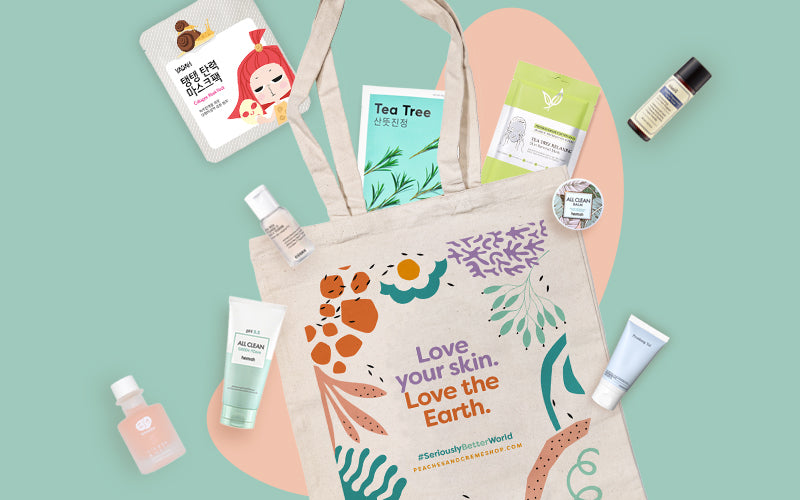Sun care 101: Choosing a sunscreen for acne-prone skin
Sunscreens have had a bad reputation for ages. So today's about breaking some myths, and hopefully the stigma and trauma of using sunscreens - especially for acne-prone skin types.
There is popular belief that people with acne-prone skin should not use sunscreens because it will lead to breakouts. This is just not true. We all need protection from harmful UV and UVA rays, regardless of skin type, and this protection benefits every type of skin out there. You just need to find the right sunscreen for you.
You might not believe it, but sunscreen can actually improve acne and blemishes! You don’t believe it? Read on to find out why!
The importance of wearing sunscreen as a step for skin recovery
We keep on saying this, and we will keep repeating it: skipping your sunscreen can cause premature aging and can actually cause skin cancer. It could also lead to worsening skin conditions like photo damage like wrinkles, brown spots, pigmentation, freckles, and roughness.
Exposure to the sun increases melanin which causes skin to darken and remain dark - so wearing sun protection can make those nasty marks a chance to fade. So yes, wearing sunscreen can actually help heal post-acne scars, blemishes and hyperpigmentation faster.
Of course, we understand that it might be scary that another breakout is just around the corner after wearing sunscreen, especially if you've been plagued by bad acne in the past. Thankfully, there are now a lot of sunscreen formulations specifically designed to address this problem for acne-prone skin types, to protect your skin from the sun while still maintaining clear skin.
How to spot the right sunscreen for you
For acne-prone skin, choose either a mineral sunscreens, or if you need a chemical sunscreen, make sure they have 100% clean formulation. Here are the important things to look for:
- Non-comedogenic
- Cleanly formulated products
- Less additives, oils, and fragrances as these ingredients will most likely cause breakouts
For example, choose a sunscreen that is comprised of non-nano zinc oxide particles. This means the sunscreen particles are larger than 100 nanometers and will sit safely on top of your skin rather than being absorbed into your skin – which means it will cause less irritation.
The BePlain Clean Ocean Non-Nano Mild Sunscreen SPF50+/PA++++ is a non-nano sunscreen that also contains soothing and hydrating ingredients such as Centella Asiatica, Chamomile extract and Irish Moss extract. This sunscreen is so lightweight, has a milky consistency, quickly absorbs and has a fresh finish. It does not make your skin oily after application.
Another mineral sunscreen for acne-prone skin are the Whamisa Organic Flowers Suncreams. They contain zinc oxide which is an anti-inflammatory ingredient that helps soothe skin and minimize redness. It also includes ingredients such as aloe vera, grape seed oil, olive oil, avocado oil, and rice extract that condition the skin and provide it with antioxidant protection. Whamisa Organic Flowers Suncreams are non-comedogenic, meaning they do not contain any ingredient that could clog pores and cause breakouts (best for acne-prone skin types). This is also a hydrating sunscreen and can be used as a primer when applying makeup. Once applied, these suncreams will leave a white cast for a few seconds, but will eventually disappear. It has a refreshing finish that leaves your skin with a natural glow.
If you want to have the Whamisa sun cream in a cushion compact, you can choose the Whamisa Organic Flowers Sun Pact which offers the same protection and hydrating ingredients, but in a compact packaging. Choose between Natural Tone Up Sun Pact or Natural Expression Sun Pact for a pink undertone!
For those who want coverage and sun protection, Whamisa Organic Flowers BB Pact offers sun protection of SPF 50+ and PA ++++. Like all the Whamisa suncreams, their BB pact uses anti-inflammatory zinc oxide, together with aloe extract to hydrate your skin, Camellia Japonica Seed Oil to enforce your skin barrier, and green tea extract for skin lifting. Additionally, it helps to cover blemishes, uneven skin tone, and imperfections. It offers medium coverage - but you will be surprised you won’t even feel the need to use your makeup foundation!
Another sunscreen that is good for acne-prone skin is the Atrue Origin Safe Mild Sunblock SPF50+/PA++++. It has zinc oxide, Centella asiatica, Houttuynia cordata, and Damask Rose Flower oil that have anti-inflammatory properties to calm, soothe and heal acne or breakouts while also hydrating the skin.
A chemical sunscreen that is suitable for acne-prone skin, even for those who are suffering from fungal acne, is the Neogen Dermalogy Probiotics Relief Sun Essence. This sunscreen is formulated without any pore-clogging ingredients. It has a water-based, watery-gel type formula infused with probiotics which helps strengthen the skin’s moisture barrier while providing soothing, hydration, moisturising, and anti-aging benefits to the skin. What’s more? It contains Niacinamide, which is known to reduce the appearance of blemishes and congestion in the skin, improve the appearance of enlarged pores, uneven skin tone, fine lines, dullness, and improve a weakened skin surface.
Other things to remember
Now that you know what to look for when choosing a sunscreen for your acne-prone skin, here are the other things to keep in mind to make sure your skin is taken care of as you use sunscreen.
Don't use your body sunscreen on your face
Remember that a sunscreen that you use for your body should not be used for your face. Normally, sunscreens that are intended for body use have heavier formulations with comedogenic ingredients and oils that can easily clog your pores and worsen your acne. In comparison, facial sunscreens normally have lighter and/or oil-free formulations.
Double-cleanse at the end of the day
Because you are using a sunscreen as part of your daily routine in the morning, you have to remember to double-cleanse in the evening by using an oil cleanser or a cleansing balm and thoroughly wash off oil-based impurities from your pores (e.g. your sunscreen and make-up). This ensures that your skin is completely clear of dirt and any other particles that may cause breakouts.
Always, always wear sunscreen
Lastly, don't be skipping your sunscreen in the morning because of fear that you will break out. You will be actually doing your skin a favor by wearing sunscreen. Gone are the days of scary sunblock - there are a lot of new, innovative and high-quality sunscreen formulations nowadays that will protect and nourish your skin, and won’t clog your pores and trigger breakouts! 😊








Leave a comment